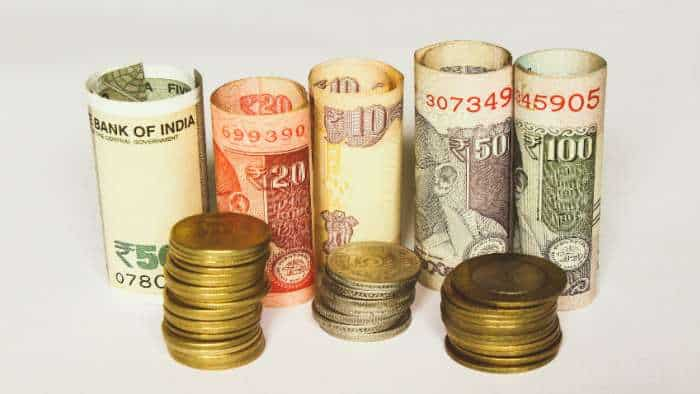Corporate earnings suggest India's growth story is on track: Rashesh Shah, CEO, Edelweiss Capital
In an exclusive interview with Zee Business, Rashesh Shah, the chairman of Edelweiss Group, said that growth cycle of Indian economy has returned and this can be ascertained by looking at the three-quarter results of core sector industries.

Rashesh Shah, the chairman of Edelweiss Group ,in an exclusive interview with Swati Khandelwal Jain, Zee Business, said that growth cycle of Indian economy has returned and this can be ascertained by looking at the three-quarter results of core sector industries. Corporate results of the first quarter hint that there is an uptick in the corporate earnings. Here are the edited excerpts:
Q: India is going through an interesting phase where there are signs of economic growth but this growth is being chased by a slowdown, which is running parallel to it. In fact, corporate India is not that confident, plus there is volatility in demand pattern in the market. What is your outlook on India's growth story and pace of economic growth?
A: I am confident and can say that the growth cycle has returned to India and it can be ascertained by looking at the results of last three quarters, may it be auto sales or housing sector, among others. There is a visible uptick in the results of these quarters. The corporate results for the first quarter show a pattern that there is an uptick in the corporate earnings.
However, a fall in corporate earnings was noticed between 2013 and 2016 and now there is an uptick in the earnings, which is clearly visible from the past one year. In addition, there is an uptick in the global economy and I feel that Indian economy had adjusted itself to the shocks that were created through certain steps, like demonetisation and GST, and has returned back on the track. In fact, this is secular growth and we can see an uptick in the growth story of almost every industry. However, capacity utilisation, which has improved and reached a mark of 72-74, is still lagging behind. But new investments will come after it reaches the mark of 78 and I feel capacity utilisation will propel fresh investments.
Q: Weakening of the Rupee value is a major area of concern. In addition, other global factors like trade war can also have an impact on India's market.
A: I think the weakening of Rupee has a major impact on the country's inflation as it affects the prices of fuel that is imported by us. However, this weakening of rupee value is good for the export sector of the country and I have seen exporters saying that the level of 71-72 is a fair valuation of the currency.
Q: When it comes to ARCs and stressed assets then we can see that banks' recovery from stressed assets has not been completed till date. What is your view on it and how long will it take to resolve the problem? Are the steps taken to recover stressed assets satisfactory?
A: The stress that we are looking at present started in 2013-14 and usually it takes five years to adjust such events. However, the industry and media get impatient and think of an overnight solution or a single point solution to the problem. The existing non-performing asset (NPA) crisis in the country is a result of cyclicity, changes in policy, overspending by promoters in projects, which were not viable, and many more. It has been just 3-4 years and I feel that we should wait for one more year to see the results. Till date, we have finished with the NPA provisioning and its quantification and need to clean them up. RBI's asset quality review strategy has helped in the quantification of such assets. Currently, IBC is looking after resolving and recovery of such assets and it is working in an efficient manner to complete the process. In fact, IBC is a breakthrough law and I feel that in next 4-5 quarters we will be able to put a complete full stop on such NPAs and look forward towards growth.
Q: Meanwhile, while we are talking about development and growth, I would like to know about the market that has touched new heights. We have felt little pressure in midcaps and smallcaps. What is your take on it and how can we manage it?
A: See, there are corrections and for the purpose, you will have to look at the way in which the midcaps have outperformed the largecaps in last four years. There is a ratio for it, .i.e. midcap to largecap index, in which the midcaps have outperformed the largecaps by almost 100 per cent. The market will strengthen itself after the shocks are absorbed, which were felt due to the corrections, and will help in boosting the confidence of investors. In fact, it has helped in offering a valuation to midcaps and can pull the attention of new investors towards them.
I feel we must not analyse it a lot as it is a part of the correction phase of the midcaps. If you have a look at the four-year history of midcaps than you will be able to see that the indices have outperformed themselves. Movement of domestic savings into mutual funds is a positive move and is boosting the confidence of the market. There is an improvement in earnings in the same way as I have said about the corporate earnings, which has seen an uptick after seeing a fall for continuous five years.
The investors are hesitant, even after there is an uptick in the corporate earnings, liquidity and confidence and this hesitation is related to signs of inflation, upcoming elections, global uncertainties like the trade war. So, the saying glass is half full or half empty will always be there but India's story in the long term is going to be intact and will boost the confidence of Indian investors. However, the global investors are selling their positions as they are not liking the growth story of emerging markets and India is a part of the same league.
Watch this Zee Business video
Q: Sectors are very important for investment. Can you suggest some sectors that should be avoided while investing in the market?
A: Actually, the investors should concentrate on the companies with a good track record and its management instead of going sector wise as every sector is full of good and bad companies. While choosing the companies, they must go for those that are dependent on the economic growth of India like auto, FMCG, financial services, export-oriented business, IT and Pharma among others.
Get Latest Business News, Stock Market Updates and Videos; Check your tax outgo through Income Tax Calculator and save money through our Personal Finance coverage. Check Business Breaking News Live on Zee Business Twitter and Facebook. Subscribe on YouTube.
RECOMMENDED STORIES

Power of Compounding: How much corpus you can generate with Rs 8,000 monthly SIP investment in 20, 25, 30, and 35 years | See Calculations

Rs 55 lakh Home Loan vs Rs 55 lakh SIP investment: Which can be faster route to arrange money for Rs 61 lakh home? Know here

Top 7 Gold ETFs With Best Returns in 3 Years: No.1 ETF has converted Rs 7 lakh investment into Rs 10.80 lakh; know how others have fared
10:58 AM IST









 MSME segment is one of the most potent growth engines for Indian economy: Rashesh Shah
MSME segment is one of the most potent growth engines for Indian economy: Rashesh Shah To tide over crisis faced by industry, Ficci calls for measures to improve liquidity
To tide over crisis faced by industry, Ficci calls for measures to improve liquidity